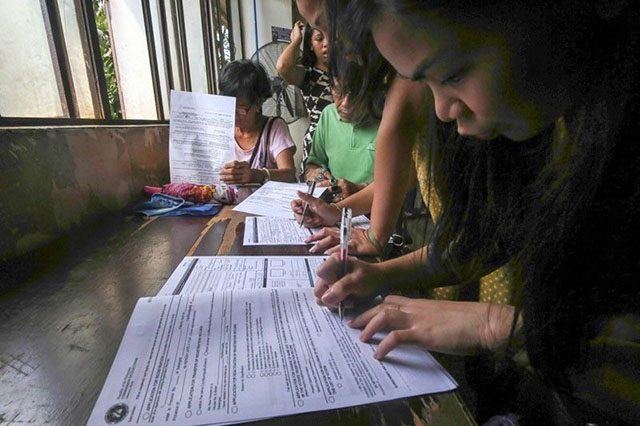As questions and concerns are raised regarding the partial unofficial tally of the 2019 midterm elections, tips on how to handle post-election stress surfaced on social media.
Diwa Mental Health shared suggestions on how Filipinos can manage their “anger, apathy and blues” if the election results seem to not end up in their favor as constituents.
According to the page, there are ways that can be done to keep one’s emotions and mental health in check after the midterm elections.
Diwa said that denial and anger can be understandably felt by the voter but it shouldn’t stop them from acknowledging the results as it cannot be changed.
“Accept the results as they are, not as you wish them to be. Acceptance allows you to stay in the present, minimizing anxiety about the future or the past,” it said.
It also stressed that acceptance is not in any form a way of “giving up.” Instead, it is an indication that people should acknowledge there is “more work that needs to be done.”
This particular sentiment, for instance, was echoed by some opposition senatorial aspirants such as Samira Gutoc, Erin Tañada and Chel Diokno who vowed to continue fighting for democracy even after their defeat.
Former Bayan Muna party-list representative Neri Colmenares, meanwhile, tweeted that he will never concede and that the fight will “continue” post-election.
Diwa also urged Filipinos to be with their respective friends and family at this particular time.
“Strengthen your ties with your communities and organizations. Acknowledge the efforts you have made to reach out to neighbors and voters, to organize grassroots advocacy, or to lend a helping hand however small you believe these were,” it said.
Filipinos should celebrate their efforts with their loved ones, according to the page.
Diwa also suggested that people should “minimize media exposure” whenever possible as it would help them keep away “feelings of uncertainty.”
“The spike in Google search for ‘migration’ is an example of how election results can lead to feelings of uncertainty. We are frightened and on edge. It can feel overwhelming,” the page said.
Earlier this week, there have been reports of Filipinos searching about the topic of migration online when preliminary results of the elections came in on the night of the voting day.

The senatorial slate was mostly dominated by administration-backed bets who have more or less been involved in controversies such as Bong Revilla, Imee Marcos and Francis Tolentino.
Despite this, Diwa reminded Filipinos to be kind, nice and emphatic to the people they regularly encounter post-election, even if they have different preferred electoral bets.
“A deliberate, simple act of kindness can go a long way to foster hope and minimize stress. Compliment someone. Acknowledge a colleague for their hard work… these can counteract a lot of our post-election blues,” it said.
The page also encouraged the public to continue working, especially those who are involved in grassroots and watchdog organizations.
Mourning and doubting such efforts can “underscore” one’s sense of purpose, Diwa said.
“They might highlight ‘what is wrong in our country’ but they also point to a clear message: We need to continue the work, we deserve better, we will thrive,” the page said.
“Go volunteer, maintain your social networks, connect with community organizations. Go ‘rage’ and ‘get mad’ productively,” it continued.
Lastly, Diwa reminded Filipinos to take care of their basic needs amid the election-related uproar because these are “fundamental to our well-being.”
“Keep hydrated… eat well and regularly. Get enough sleep, try not to sleep with the phone next to you. Get some exercise or vigorous physical activity,” it said.
Error-filled election
Multiple reports about errors with the Comelec’s transmission server have prompted politicians and election watchdog National Citizens’ Movement for Free Elections (NAMFREL) to question the integrity of how the election was conducted.
NAMFREL particularly noted that there were several problems encountered by voters nationwide during May 13 itself.
Violence, voter disenfranchisement, malfunctioning vote-counting machines, unauthorized handling of election materials, vote buying, inaccessibility of special polling areas to persons with disabilities, pregnant women and senior citizens were observed in different precincts.
Senator Panfilo “Ping” Lacson called on the need to investigate the glitches in relation to the election body’s transparency server that have stopped transmitting data for hours.
A Facebook post stating the Filipino youth’s sentiments over the elections also went viral this week, indicating that majority of them were dismayed with how the preliminary results have turned out.
More than half of the 61.8 million registered voters in the country belong to Generation Y—or the millennials—born between 1981 to 1996, and Generation Z, or those born after 1997.
Previous mock senatorial surveys conducted in higher educational institutions have revealed that opposition electoral candidates were preferred by most students than those backed by the administration.










